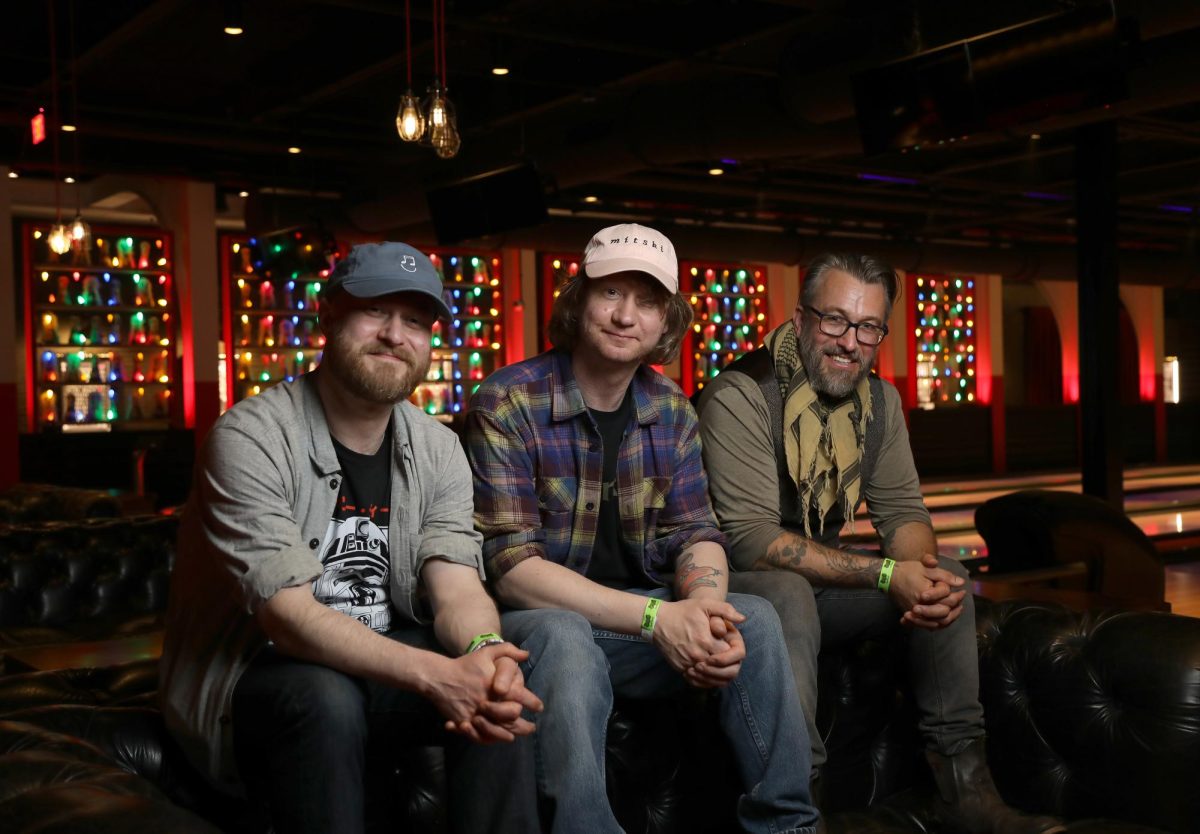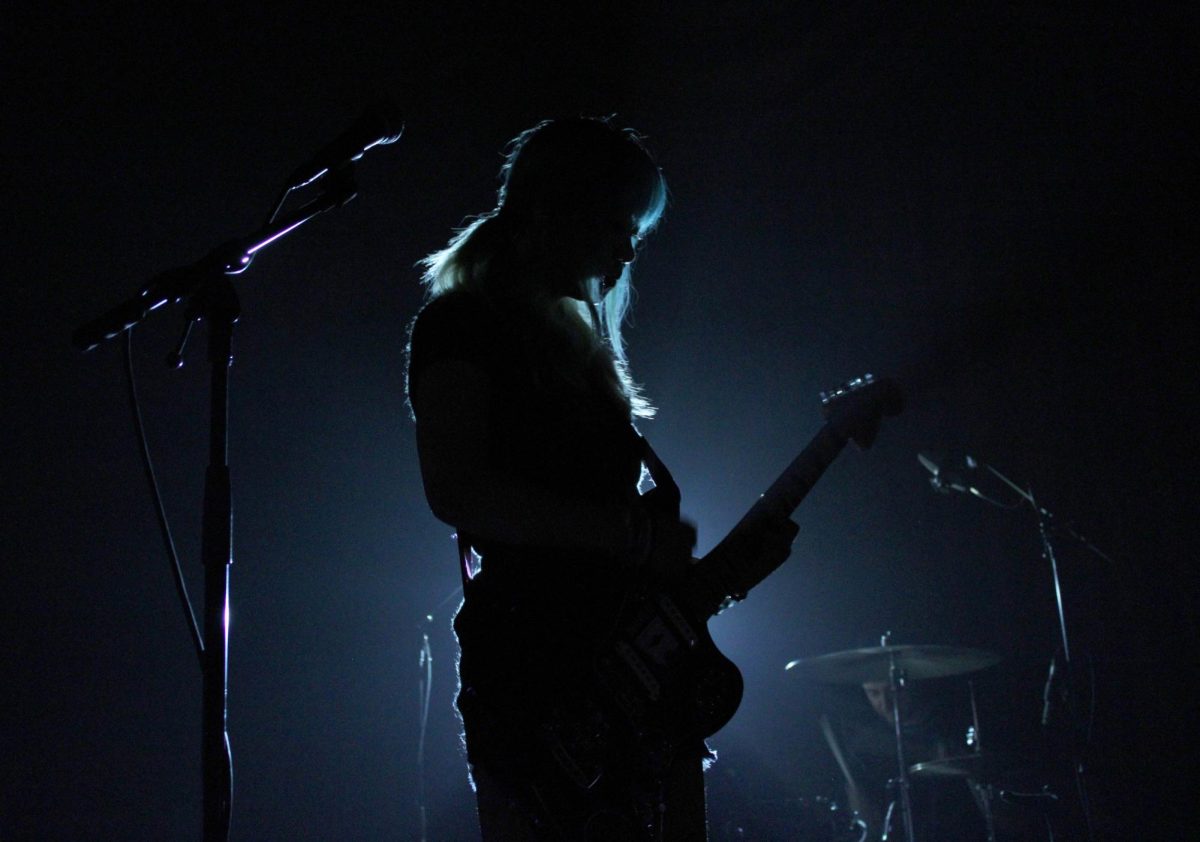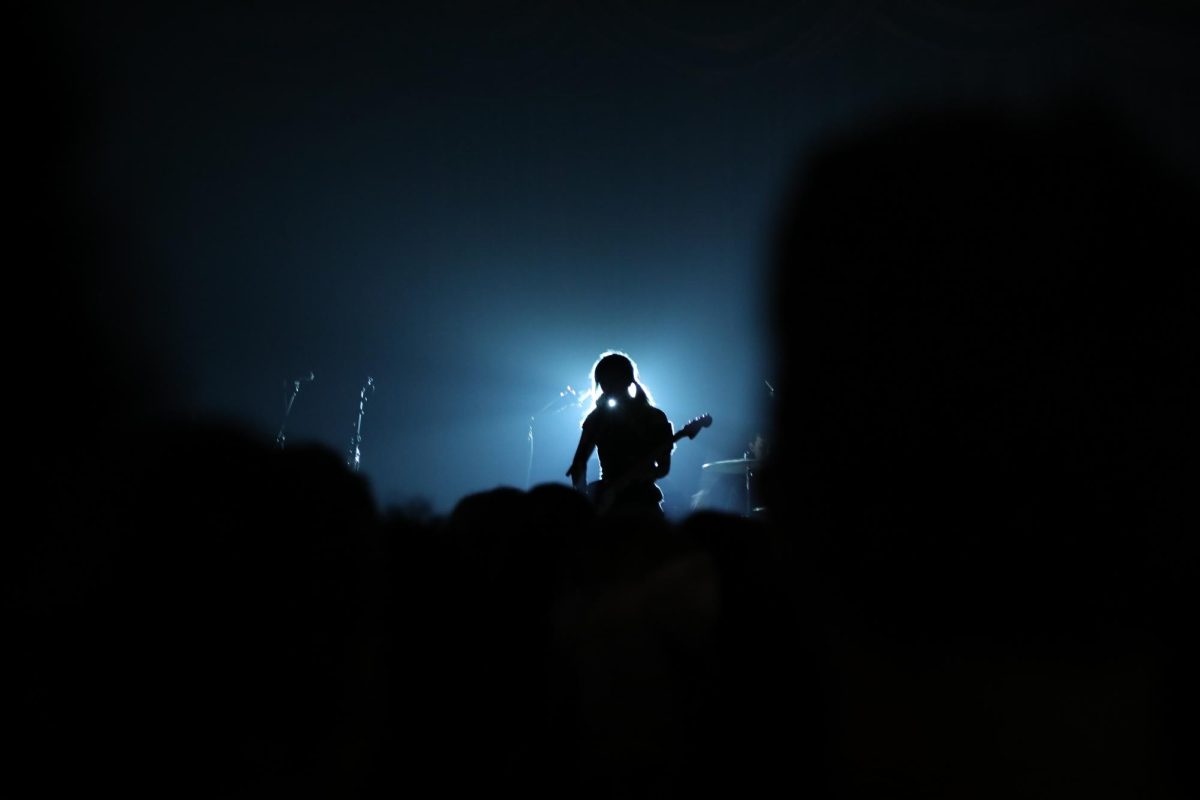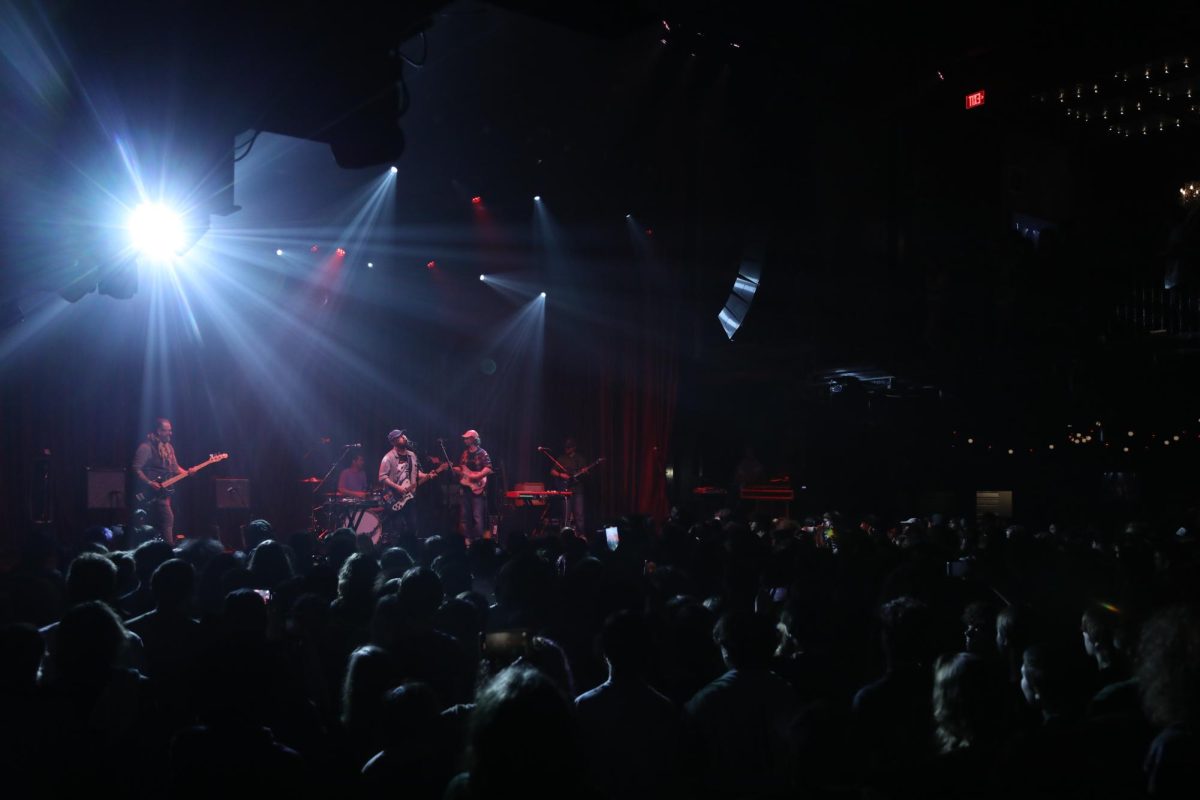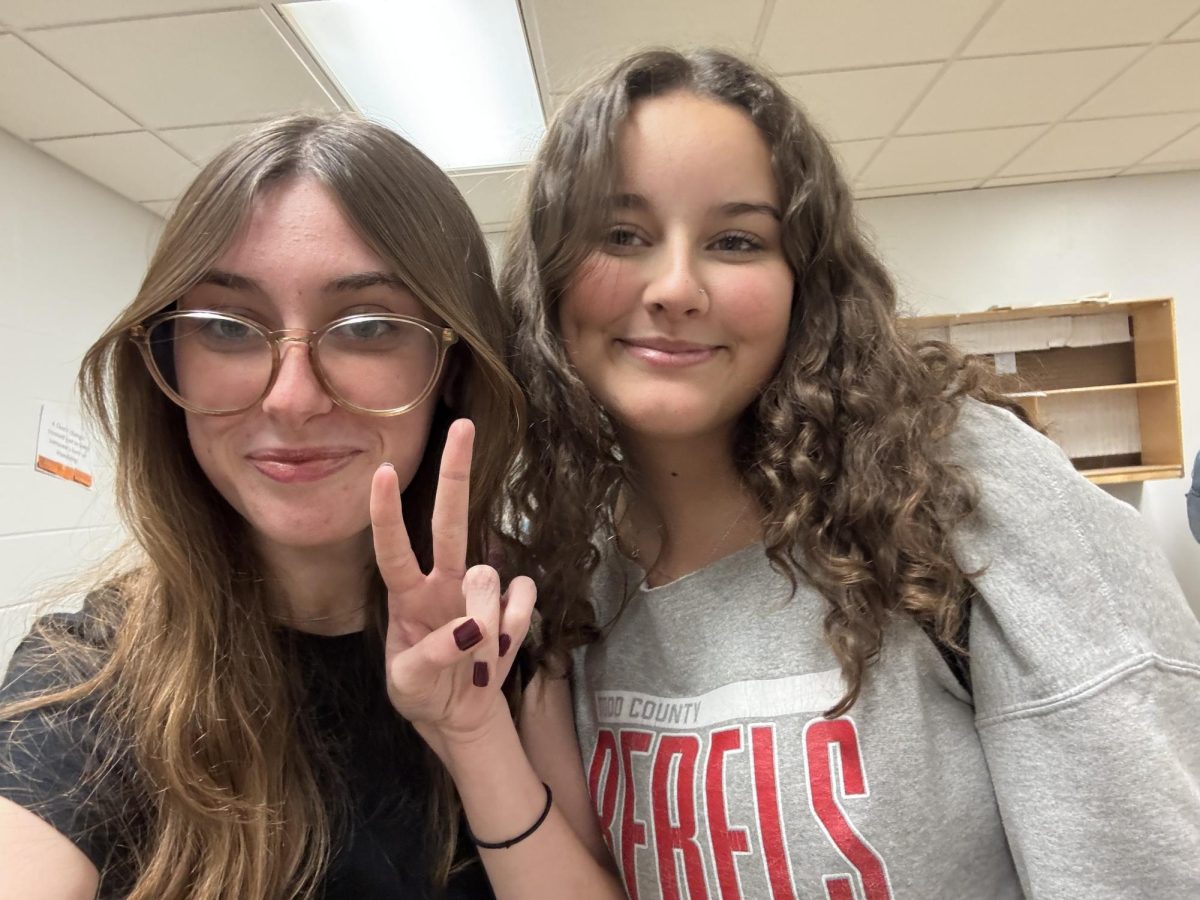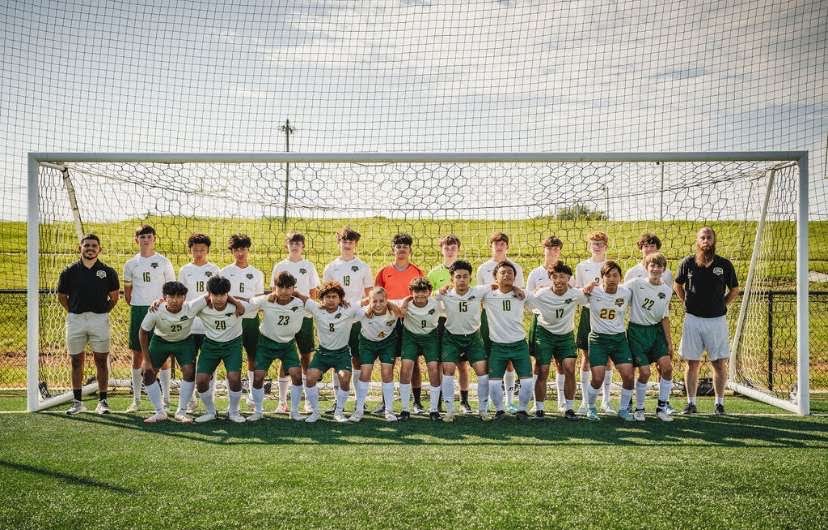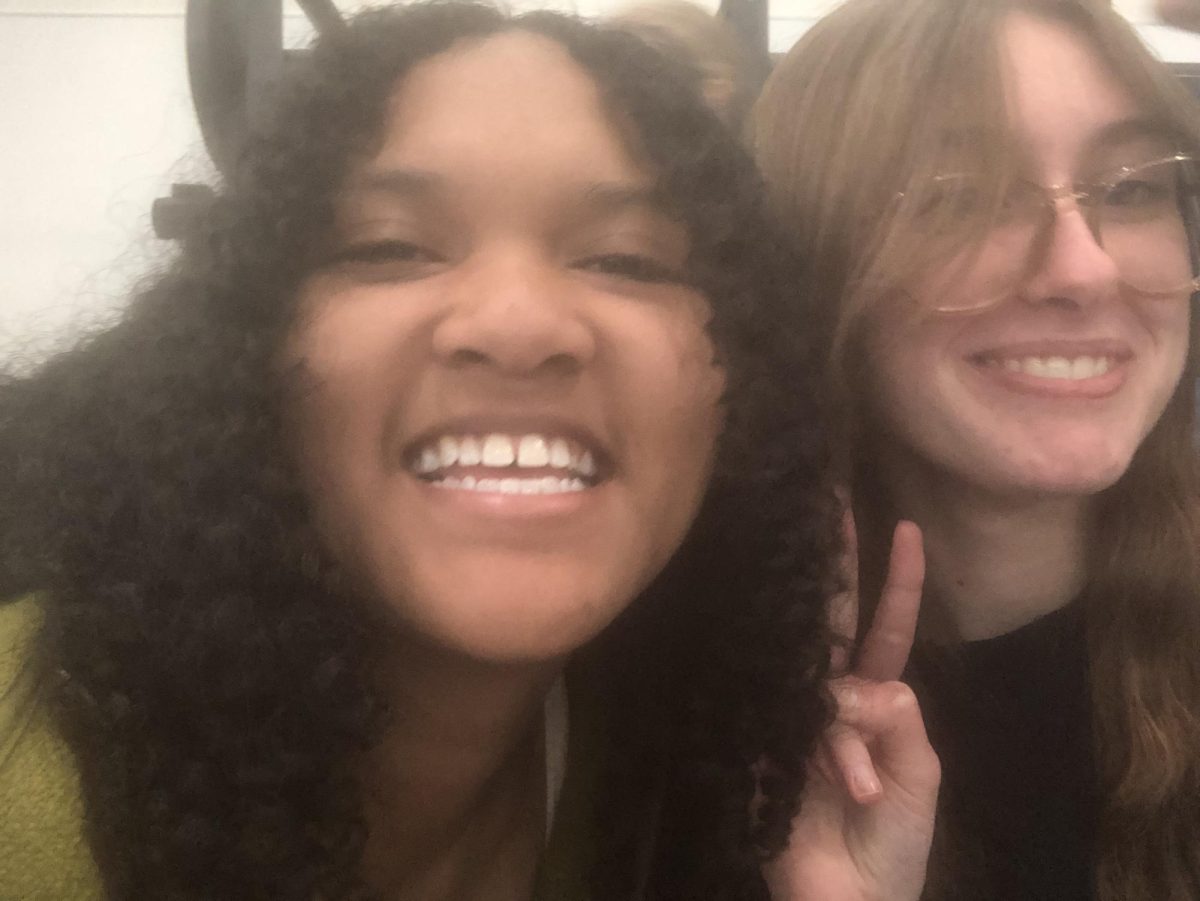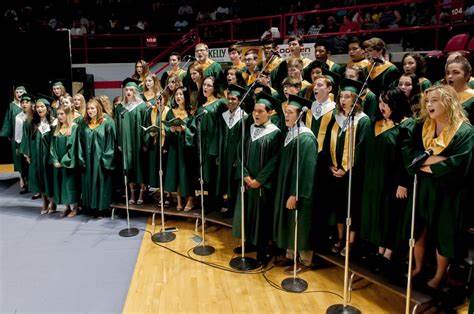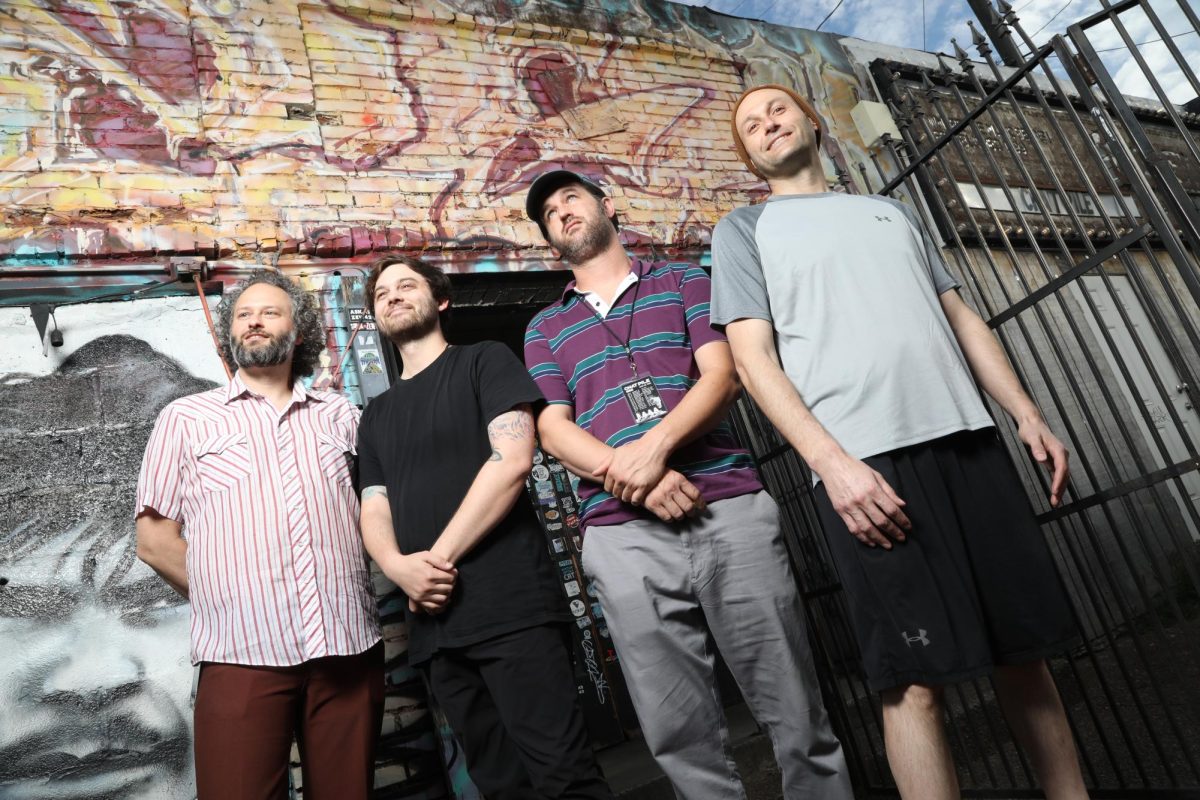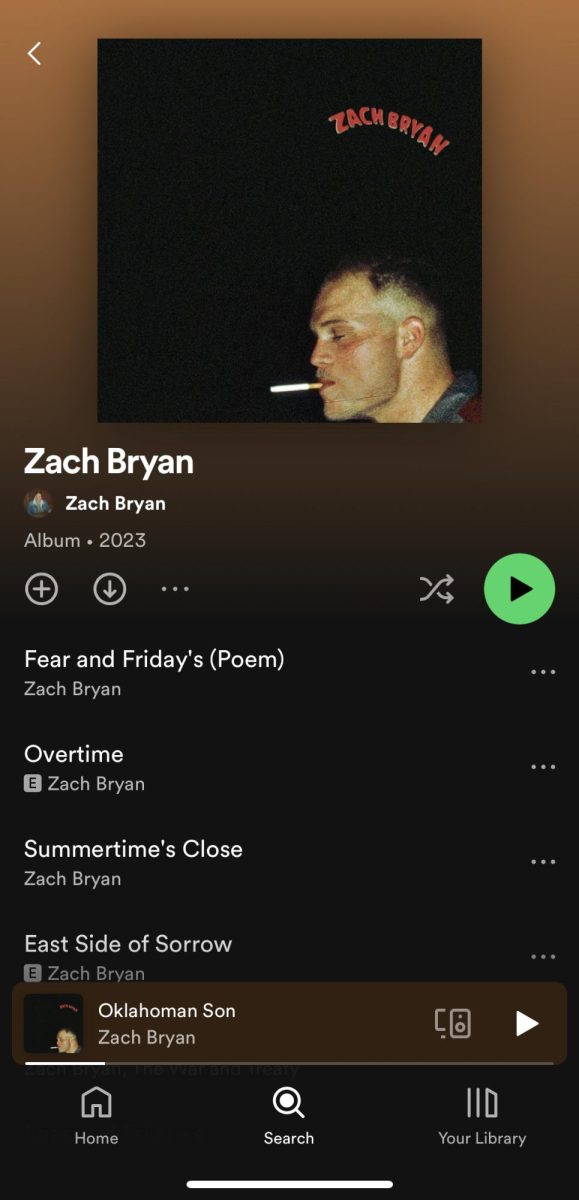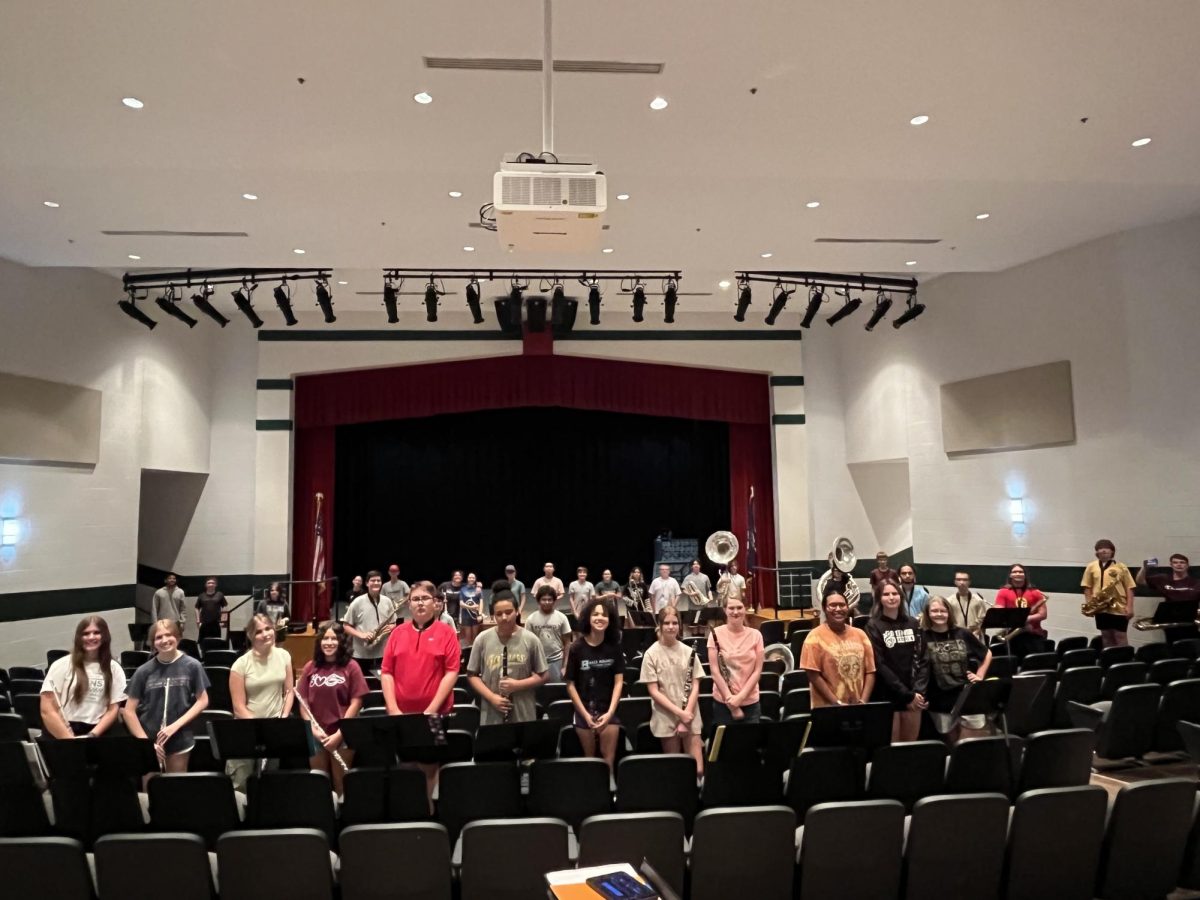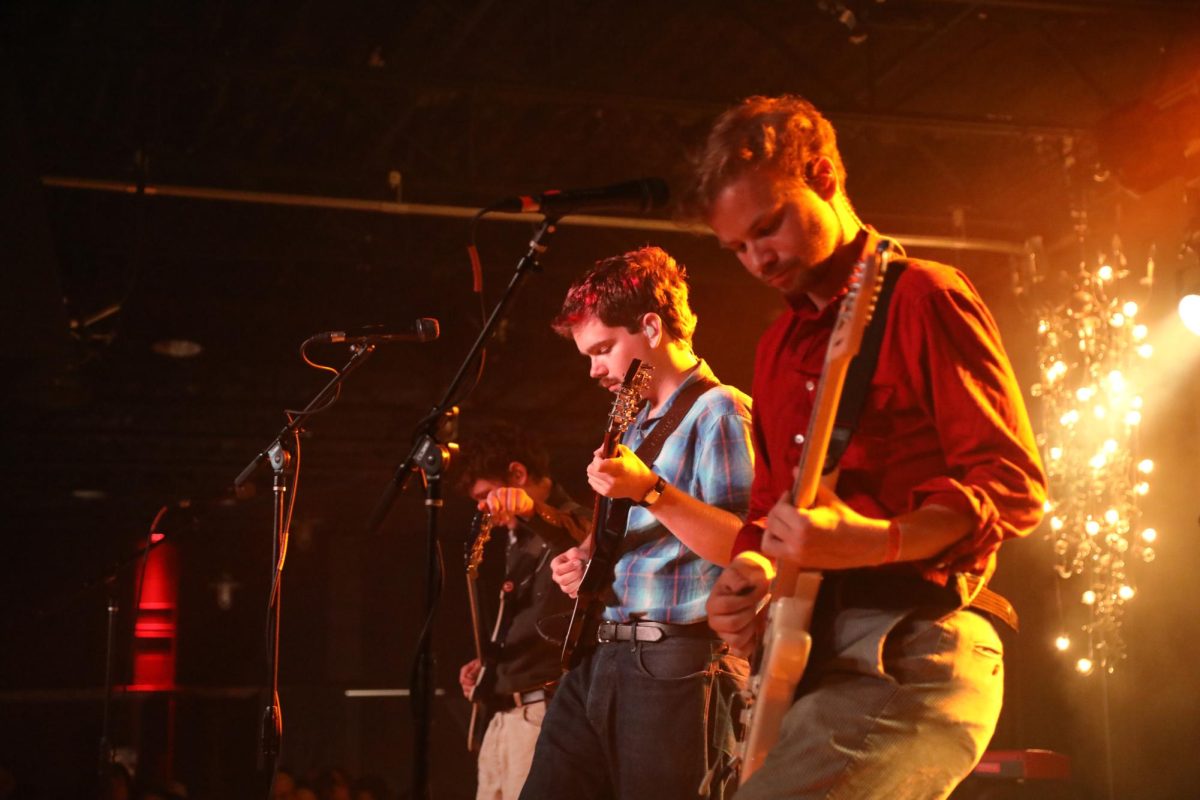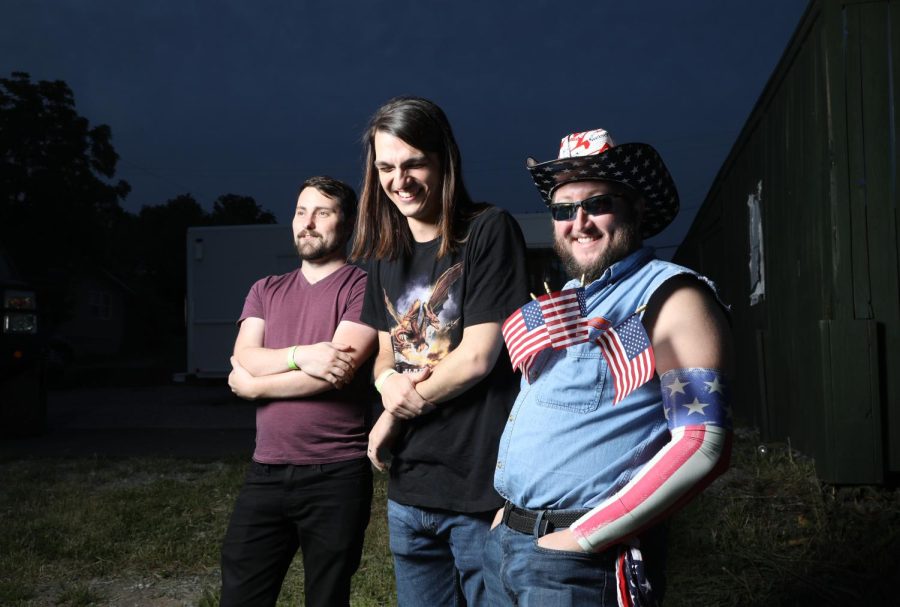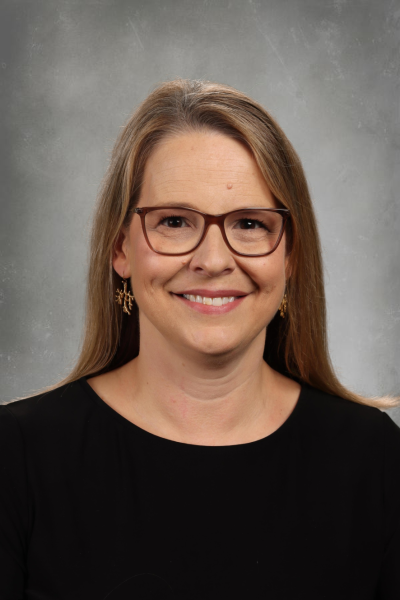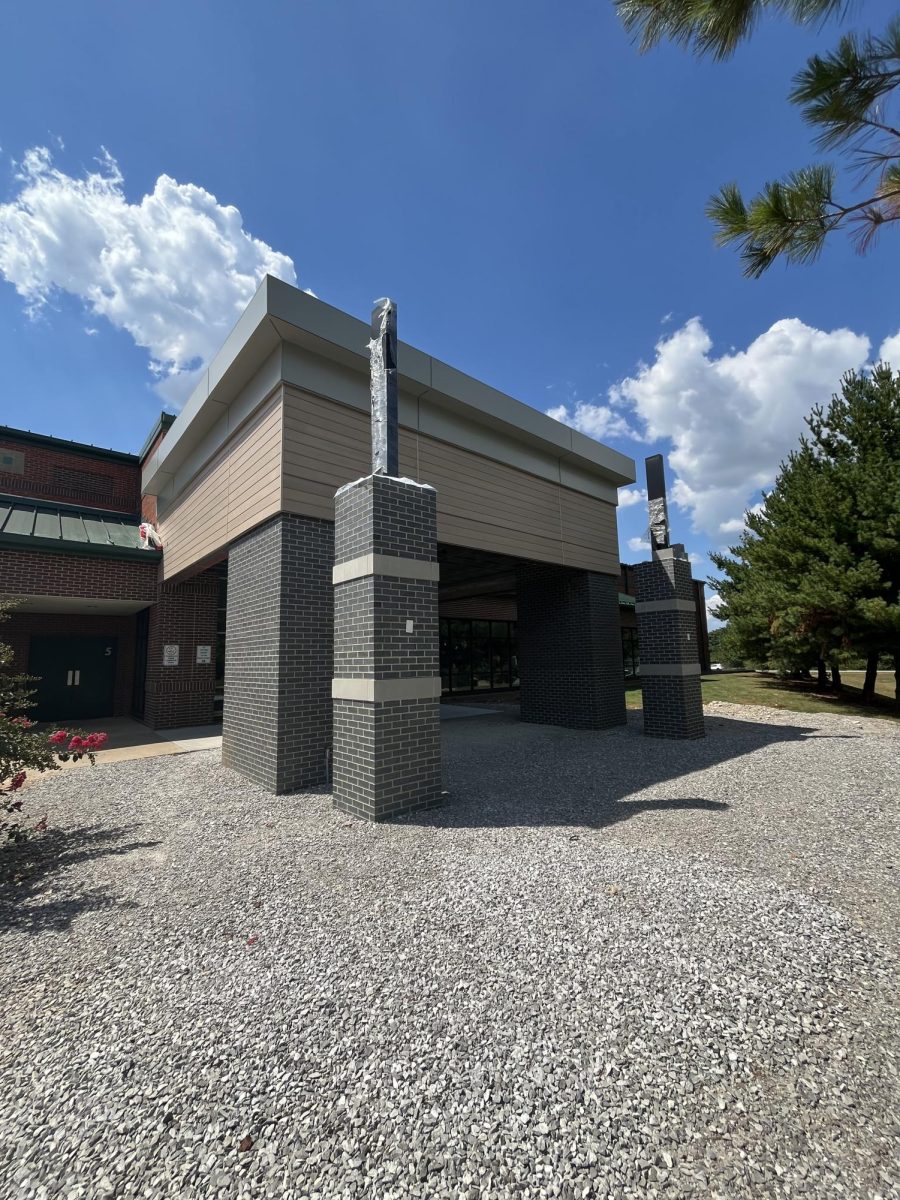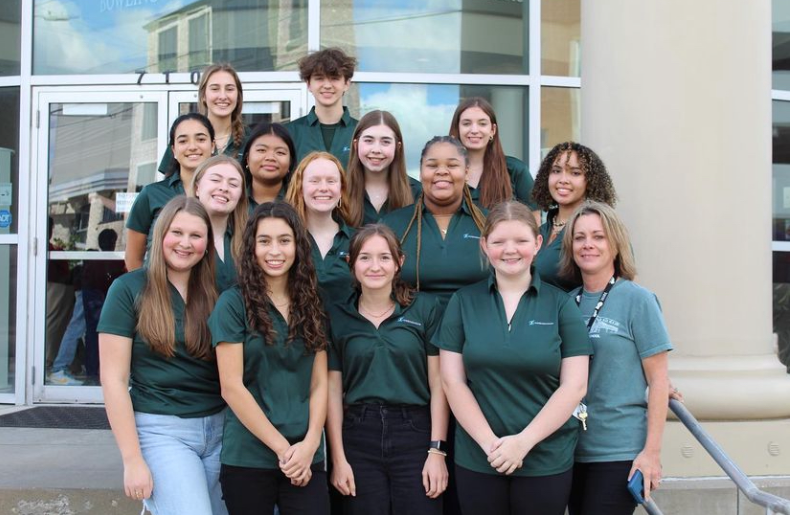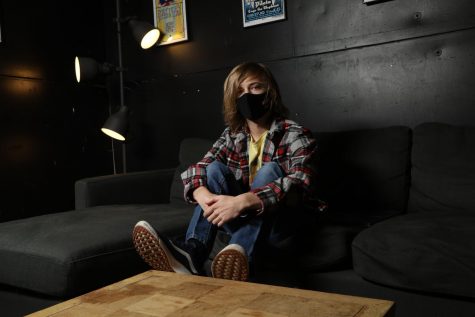Disbanding when they were teenagers only to be discovered twenty years later and promptly reformed, Nottingham natives Panchiko play in Nashville for the first time.
It took them long enough, honestly. The band had brought their unique indie sound to the area before with a couple of Atlanta shows, but it was always just out of reach. Nashville, though? Dude. I was lucky enough to know a handful of people who were just as excited as I was that the band was coming to town, so we all went together.
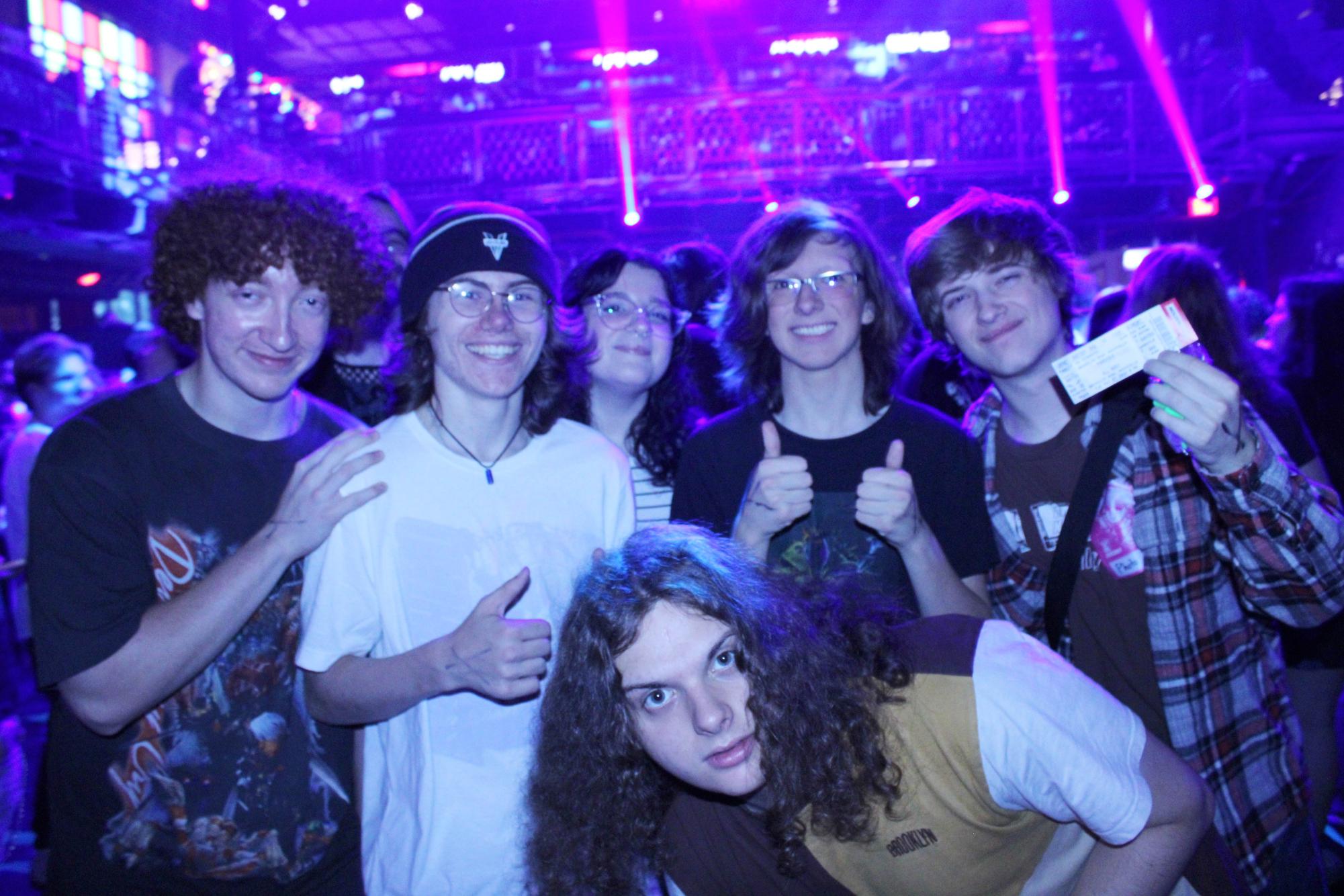
Panchiko formed as teenagers, with the original line-up consisting of Owain Davies (vocals, guitar), Shaun Ferreday (bass), Andy Wright (guitar, keyboards), and someone named John on drums. No one in the band knows where John is — they hadn’t heard from him since he joined the military. The group released an EP titled D>E>A>T>H>M>E>T>A>L in 2000, and that was it. Life went on, so the band didn’t. It wasn’t until 2020 that the former members caught wind of a years-long investigation to find the members of Panchiko after a beaten-up, distorted copy of their EP was found and posted to the internet. Years later, as adults with full-time jobs and families, Panchiko is — against all odds — a band again. Of course, they did get a new drummer, named John Schofield (a different guy), and an additional guitarist named Rob Harris. They even released their first album, Failed at Math(s), on May 5, 2023! Neat!
I was a little anxious waiting for this interview for a few reasons. First, judging from monthly listeners on Spotify alone, Panchiko is the largest band I have ever spoken with to date, going in and out of a million. Second, this was the first interview I had with an artist after their show rather than before. Third, this is the last interview I will ever do for my high school newspaper. Fourth, I was starting to get a headache on the ride to the show. Hate to spoil the rest of this prelude for you, but, dear reader, the headache would not get better.
Wisp (one of two original openers scheduled — Weatherday sadly couldn’t make it), would take the stage in about fifteen minutes, so my dad and I, each with a camera, made our way to the stage. I tried taking some test shots but had some difficulty getting the settings on my camera right, but my dad assured me that the lighting would get better when the band took the stage.

We were also able to meet a really cool guy from the Wisp crew named Nick, pictured below. We chatted for about 5-10 minutes and he was just the nicest guy ever. Thanks for talking with us!
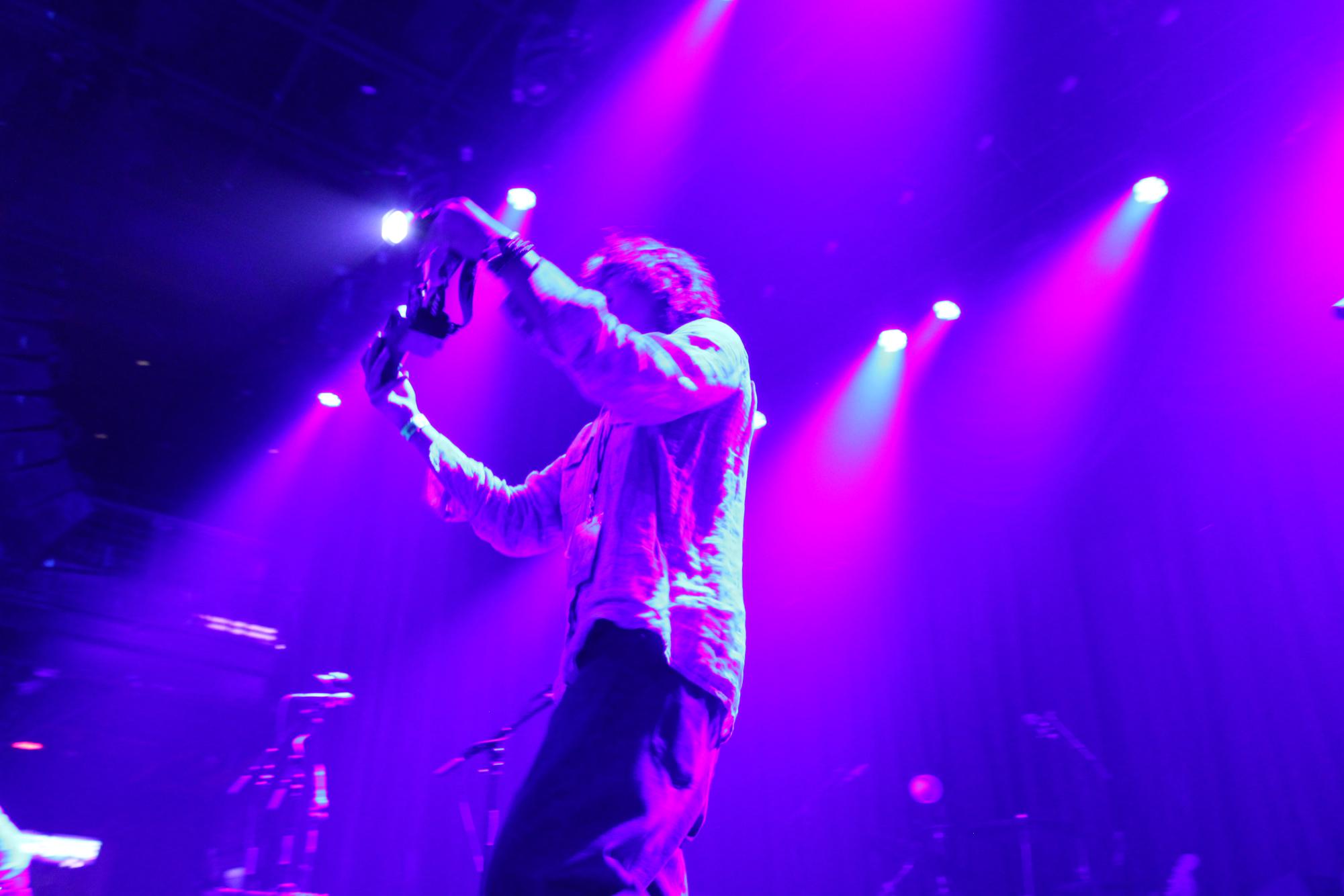
In a cruel and sick twist of fate, Wisp performed in complete darkness, with only a singular white (sometimes blue), flashing light between each of the band members. I spent most of my time just trying to get a good shot of their bass player. It also turns out that bright, flashing lights aren’t very great whenever you have a swelling headache. It turns out, however, that my dad and I were still able to get a few good shots. My dad, more so.
After Wisp’s incredible performance, Panchiko took the stage, and after taking photos of the first three songs (and after Andy introduced himself to my dad and I while he was still on stage), I rejoined my friends in the audience. I’ll try to keep my high praise short, but their performance was nothing short of mesmerizing. Something Shaun himself said in our interview later in the night was that they put on much more of a rock show when playing live, and it’s hard to disagree with that — they tore up the stage. Throughout their setlist, I even rediscovered some songs of theirs that blew my mind; “NeilSSong” and “CUT” were the big highlights for me. Not to mention, they played “Until I Know,” which is not only my favorite song by the band, but it was really, really fun live. Their whole show, front-to-back, was amazing!
The headache got worse.
Yeah, sadly, not even the rush of their awesome performance could save me. By the end, as a portion of the audience went to the merch line, another portion staged to meet the band and get a tape signed, and the remainder left, the pressure in my head became unbearable. Owain, Andy, and Shaun walked out near the bars for meet and greets, while I had to lay on the actual stage bars guzzling any cup of water I could to try and feel just a little bit better before I talked to the band formally. Informally, however, I still introduced myself to the three of them, and Shaun was kind enough to make conversation with me as we waited.
I really, truly thought I wasn’t going to be able to do the interview. And yet, around 11 PM, the trio of remaining original members of Panchiko and I were sat at a table and, somehow, with the most sickening headache of my life and a limited timeframe to speak to the band, I was able to hold a conversation with them for twenty minutes.
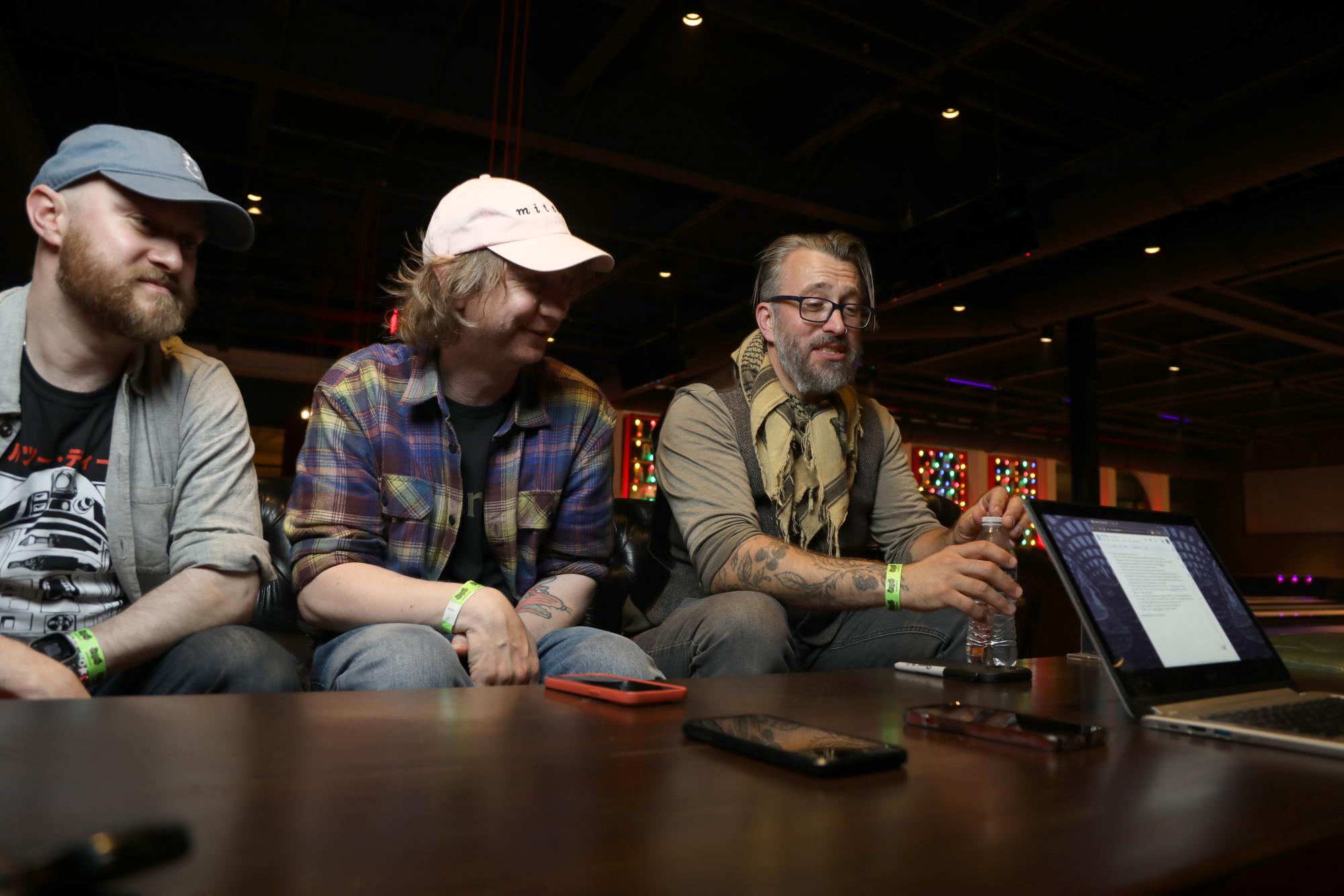
How would each of you individually describe your sound to a new listener?
S: Vaguely competent.
A: By the end of the tour, I think you’ll be vaguely competent. We’re certainly mid-level competent. I think genre stuff is a little bit of a tricky one, we didn’t really ever go out to do, “We’re going to be in a shoegaze band,” or whatever. We get put in that camp quite often. I don’t know if it’s necessarily particularly accurate.
O: Yeah, we do a lot. We do songs… and things…
S: Broadly indie music!
O: I guess it was always a little bit of indie with just a bit of samples and a bit of production live, wasn’t it? It’s a bit of a mixture.
S: It’s a little more of a rock show live.
A: It’s a rock and roll pop show!
I do find it interesting that you mentioned the shoegaze thing because you guys definitely have been looped in with a lot of those bands. I thought it was really interesting that the first show you ever played in America, the first show of your tour, TAGABOW (They Are Gutting A Body Of Water) was opening.
A: I love TAGABOW, they’re lovely people. We were doing some shows with them before Wisp joined the tour, they’re just the loveliest folks.
S: Yeah, it’s really nice to get some nice friends along the way, really. It’s really nice catching up with those guys again.
A: I think Panchiko is the friends you make along the way, isn’t it?
[The band laughs.]
You guys have definitely cited bands like Radiohead, Super Furry Animals, DJ Shadow, and more, but what are some influences of yours that some people wouldn’t expect?
O: I’ve been listening to someone called Kelly Moran at the moment. It’s just, like, piano composition. I really like composition and modern composition and solo piano stuff. So, I like listening to people like Kelly Moran or Chilly Gonzales – that sounds like I made that up, but he’s a really good pianist. It’s stuff like that, that stuff I listen to a lot of the time. A lot of hip-hop as well. I was just thinking, like, “What did I put on my phone today?” I wanted to listen to some Philip Glass today but I was gonna listen to that in the van.
A: We’re all quite old, so we’ve found our own little things that we enjoy.
O: Daniel O’Donnell.
A: I do not like Daniel O’Donnell. Stop banging on about Daniel O’Donnell! All the time! It was that one time! Just one time! I love lots of stuff the Panchiko people kind of put us onto as well, y’know?
I noticed the Mitski hat!
A: Yeah! We got a load of messages saying, “You should listen to Mitski!” I said, “I’ll give it a go,” and she’s one of my favorites.
She’s awesome!
A: It’s amazing.
O: There’s loads of people actually that they’ve put us onto.
A: Alex G.
O: Alex G is a really good one, yeah.
A: It’s just lovely to kind of get that perspective because I think when you get a bit older you get a little bit disconnected from modern culture and stuff, and you go, “Oh, there’s no good music!” It’s like, no, there’s still good music, just… we don’t know where it is. So, it’s nice to be told sometimes.
S: I’m probably more down the sort of folky acousticy side of things. I like miserable songs, so I like things like Old Sea Brigade, Novo Amor, and stuff like that. I guess The National.
A: I like The National a lot, I do. I supported The National.
S: Did you really? I didn’t even know that.
A: Yeah, I was in a band years ago and we played at a 100-cap/150-cap place and I opened for them, and there was nobody there. And, uh, they’ve done alright!
S: They’ve done alright for themselves, The National, haven’t they? Yeah, I like the sad stuff.
I guess that’s understandable.
S: Do I look that miserable? [laughs] Just ‘cause I made the Daniel O’Donnell quip…
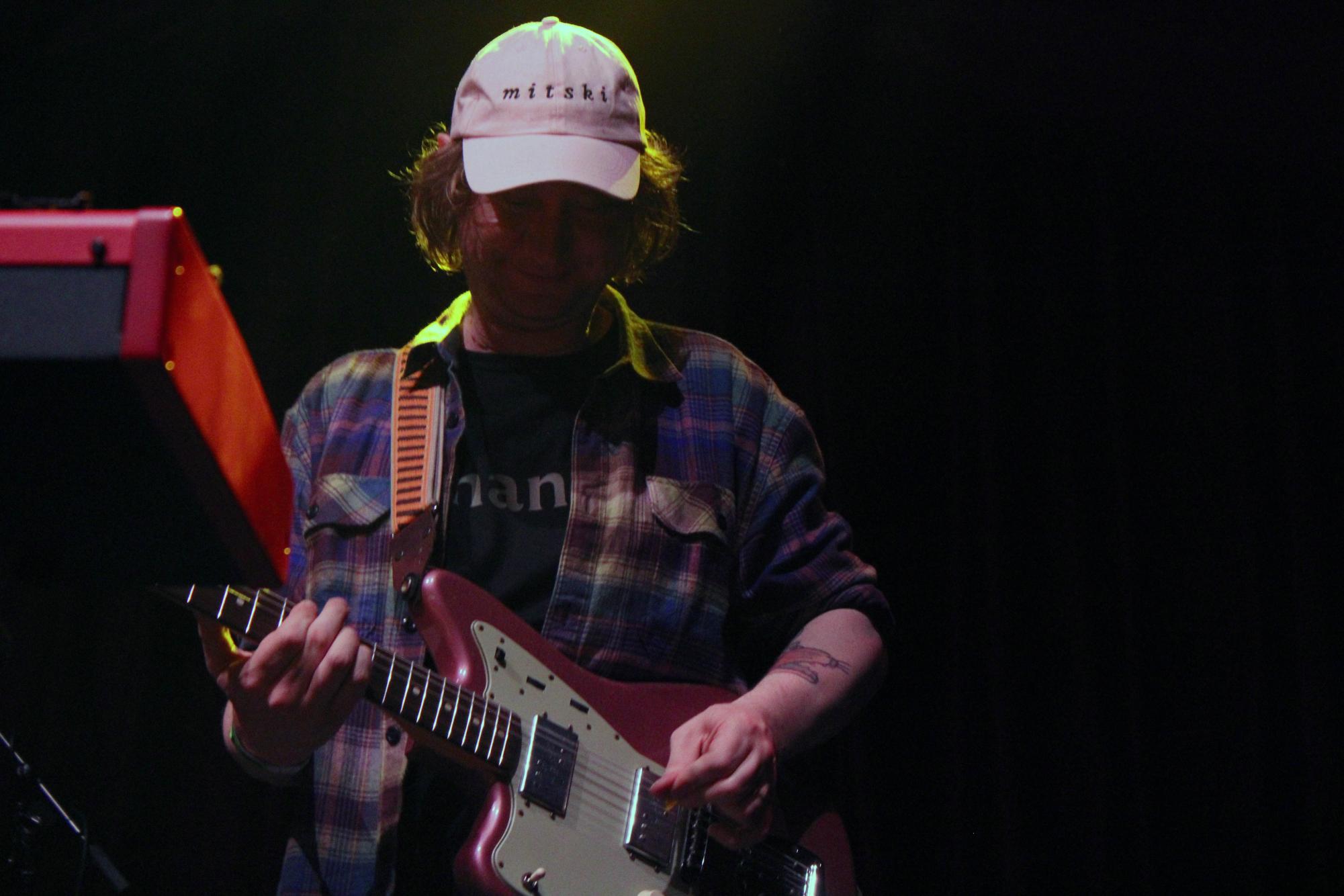
Owain, you say you listen to a lot of hip-hop; have you been keeping up with the Drake and Kendrick beef?
[Shaun and Andy laugh.]
O: No, I’ve only been hearing about that, like, roughly. I was just downloading some old Madlib beat tapes. When we went to Detroit, I was just listening to a producer called Dabrye who’s made records from… I think he’s from Ann Arbor. So, when we went to Detroit for the first time I was like, “I’ll listen to a couple of his albums and some MCs from there and stuff.” But, no, I haven’t been keeping up with that, is it– Should I be? Will I be learning things from it?
It’s intense.
S: Our tour manager has been playing us a lot of Drake.
O: I definitely listen to a lot of Kendrick Lamar because he’s a genius.
A: He’s really good!
S: But not so much Drake?
O: I don’t know! I just don’t know his music that well yet!
A: Maybe he’s a genius.
He made Hotline Bling, that’s as far as I know.
O: He’s quite big!
S: He’s very good at what he does and people seem to like him.

I was reading a lot about some of your earlier stuff and how you guys used to use this Yamaha DJX keyboard to sample, with pretty much only a two-second sample range. I was listening to some of D>E>A>T>H>M>E>T>A>L and Grateful Dead stuff back to back, and it really sounds like The Eyes of Ibad samples the end of Dark Star by the Grateful Dead. Is that real or does it just sound uncannily similar?
O: Nah, I don’t think we had any samples on that one. No, hang on, there were some samples [Andy] put on that one.
A: Yeah, there was a lot of samples, but it wasn’t Grateful Dead. It was… I think that “bwomb, bwomb–”
O: That was on a keyboard.
A: That was, like, just a pitched down… I think it’s a glockenspiel or something. Just, like, allll the way down.
O: Yeah, it was a really simple thing but pitched down really low. But then there’s all of these weird sounds that you got off of something.
A: Yeah, it was a long time ago, but I don’t think we stole anything off Grateful Dead this time [laughs].
S: I don’t think we would’ve been cool enough to listen to Grateful Dead at the time.
I knew that would be a shot in the dark, but it sounds eerily similar to me, so I thought I would try that.
S: Well, we’ll look forward to the lawsuit.
Whenever you guys did use any samples from the keyboard– the two-second storage space, would you say that was more of a limitation to you or more of something you could experiment with?
A: I don’t think it was a limitation, I think it was incredible.
O: Yeah, the fact that you could get one for that cheap at that time, it just opened up some doors.
S: It seems like a limitation now, but at the time that was, like…
A: That was a lot.
S: That was really good. So it seemed like an opportunity then.
A: I had an Akai S2000 as well, which had a bit more recording capacity. But it wasn’t, like, good. Yeah, but you can record everything you want on a phone and do whatever, but we had racks of equipment that would give you next-to-no…
S: [laughing] Three seconds!
A: Yeah. So we made the most of it. Or, I think we did the best we could.
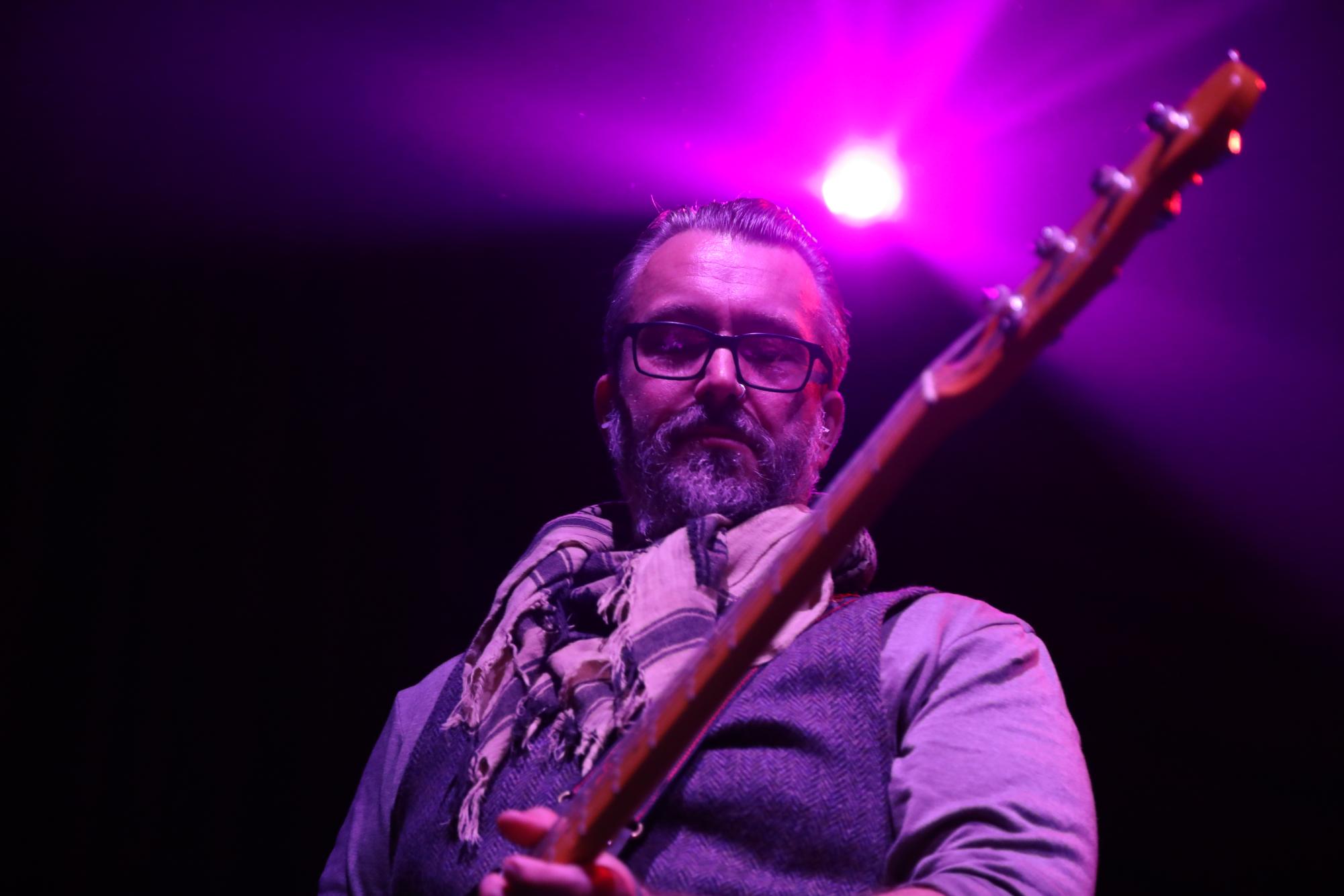
You guys had a really nice set tonight, and from what I can tell this is your second or third time in Nashville?
[Note: I was absolutely thinking of Atlanta instead of Nashville. Whoops!]
A: We’ve never been to Nashville!
O: No, we haven’t. This is the first time, so we’ve really enjoyed it.
A: It was crazy. I don’t think we knew what to… I don’t get too worried about all of the ticket sale stuff, but Nashville was quite slow to start with. It was like, “Oh, dear, maybe Nashville’s not really into it,” but… it was crazy. Everyone was mental.
S: It was tricky going to a city that’s very well known for a different style of music and then trying to play your style of music there. It’s a bit unnerving to start with, but actually… yeah, amazing crowd.
Have you guys been able to explore at all? Do you have any favorite locations?
A: We have not seen much yet.
S: We walked for about half a mile and found nothing.
A: It was really hot.
S: Yeah, we walked the wrong way to the wrong place.
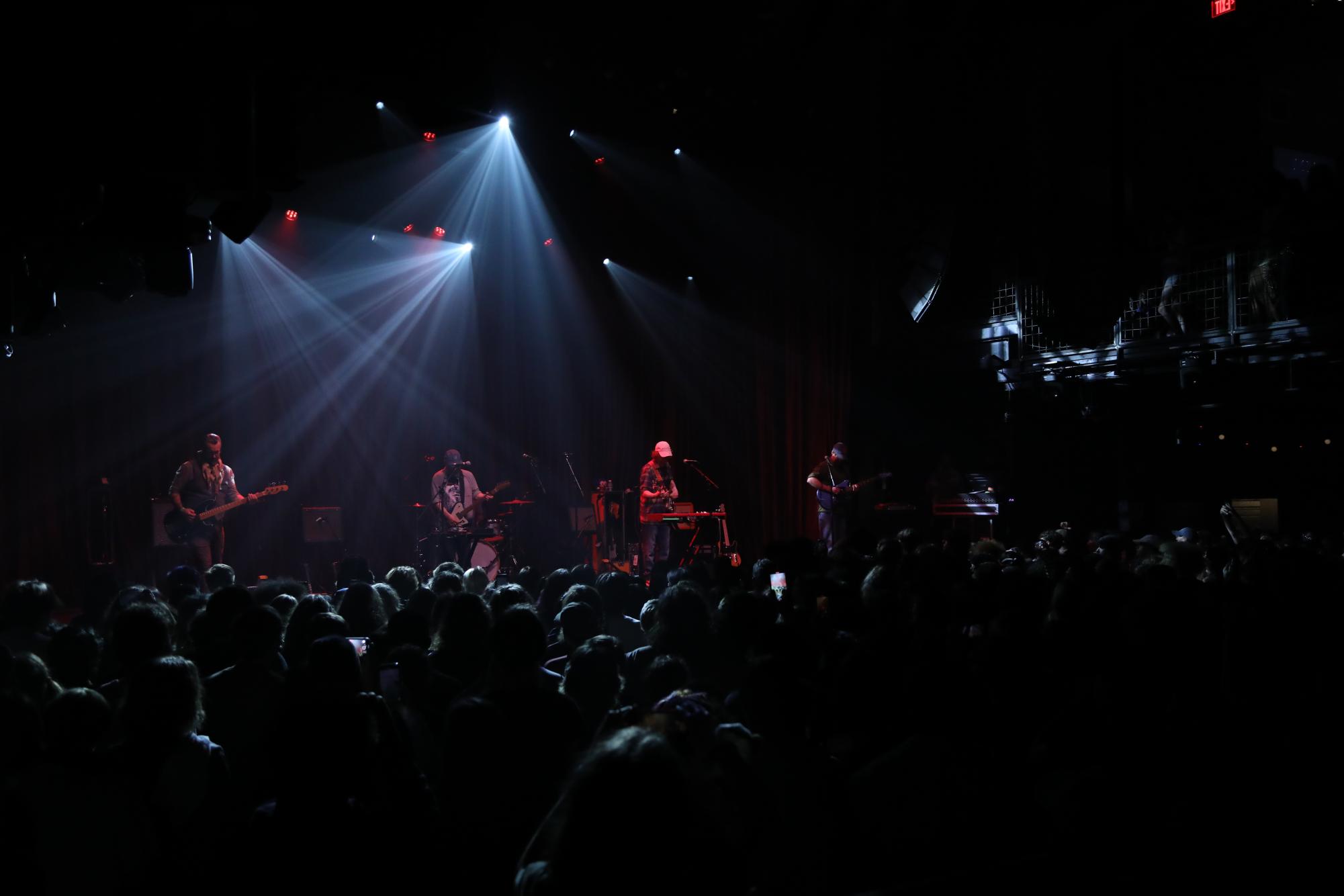
Of course, you guys were in this band as teenagers and dissolved for about twenty years and came back. Each of you, Shaun and Owain did your own separate things, but Andy, you kept on doing some music. You were in a band called Swimming and you had a solo project called We Show Up On The Radar, and you also worked a bit in mixing and mastering. So, whenever you came back to Panchiko about about twenty or so years, how were you able to use your new knowledge and experience with all of these bands and sort of reimplement it back into Panchiko?
A: I’m not sure if I managed to do that [laughs].
S: That’s a very good question!
O: He learned all the things and brought them back. Went on your little journey.
A: Yeah, I collected a few little bits and bobs. I did a lot of mixing and mastering for a lot of bands so I think that really helped in certainly just understanding the way in which you record and produce and release something – just the whole sort of way that it’s done. That was nice, but now other people do it for us, so it’s quite good. I don’t have to do anything.
O: You can concentrate on the details.
A: The details are important.
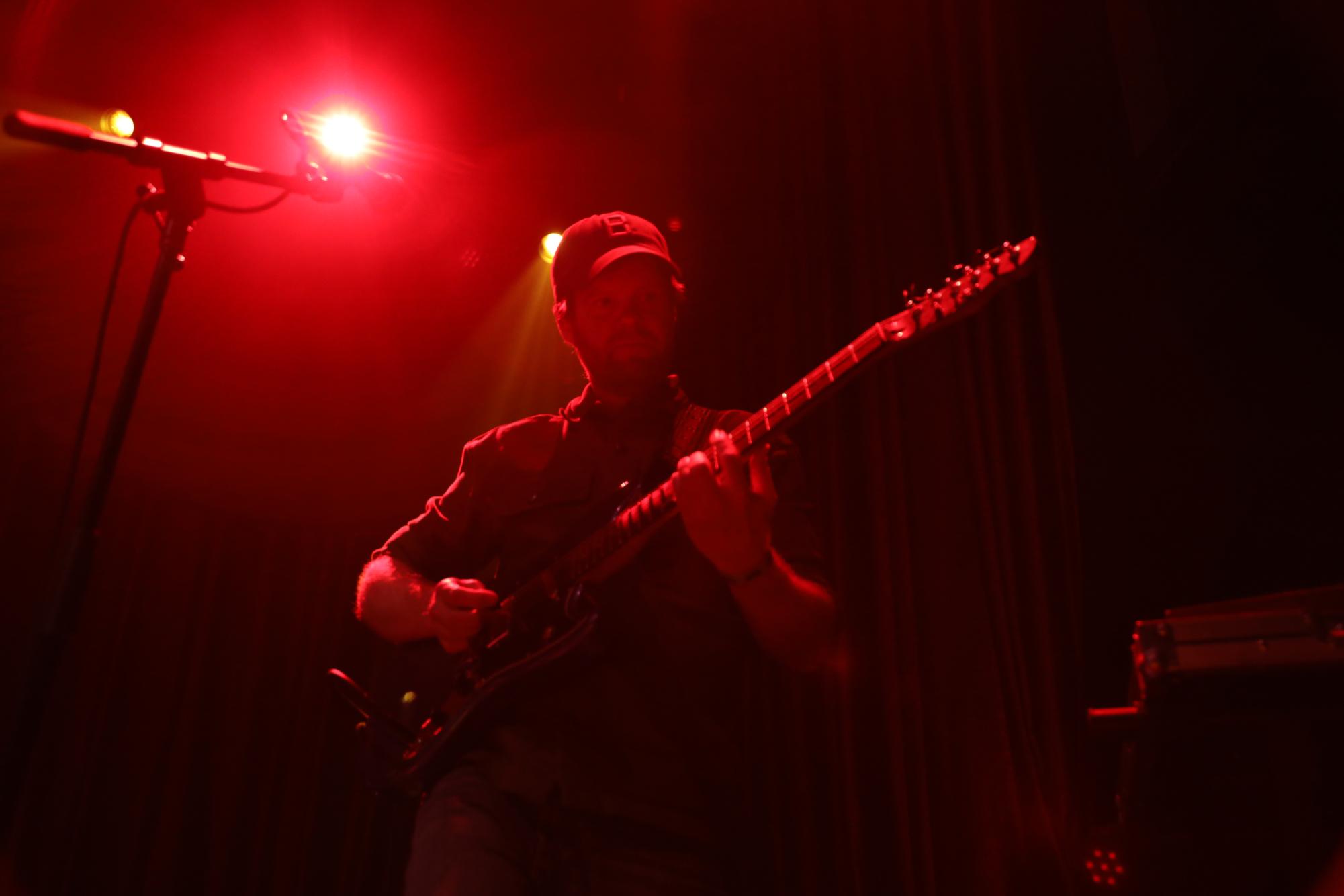
I’m glad you said this last one was a good question because I’m gonna give you something of completely opposite quality.
S: Excellent! We love all qualities.
Of course, Andy did work in audio, so he was able to put some of that stuff back into Panchiko, but Owain worked in teaching video game design, [Shaun] worked as a tree surgeon – was there anything unconventional that, while going back into Panchiko, you thought, “oh, wow–”
S: Absolutely. I had two children, so I learned to deal with tantrums and egos [laughs].
A: It’s quite a significant thing in Panchiko. There is enough tantrums.
S: No, in all honesty, I… can’t say I added anything [laughs].
O: You bring a unique, uh, innocence.
S: Musical innocence, that’s what I’ve got!
A: He’s a blank slate. Ask anybody, the blankest slate!
How do you define that?
S: I find it… It’s quite difficult learning to play an instrument after twenty years, that was quite tricky.
A: I wouldn’t be… I wouldn’t be so confident.
S: I wasn’t even a little bit confident. The first gig we had back, I hadn’t picked up a bass in over a decade, so I kind of, y’know, I slipped through the cracks a bit. Yeah, I don’t know if I– I bring a willingness to learn! That’s what I bring. Enthusiasm!
A: I don’t know if you need much else.
S: And I can drive quite well.
A: Yeah, you’re a good driver.
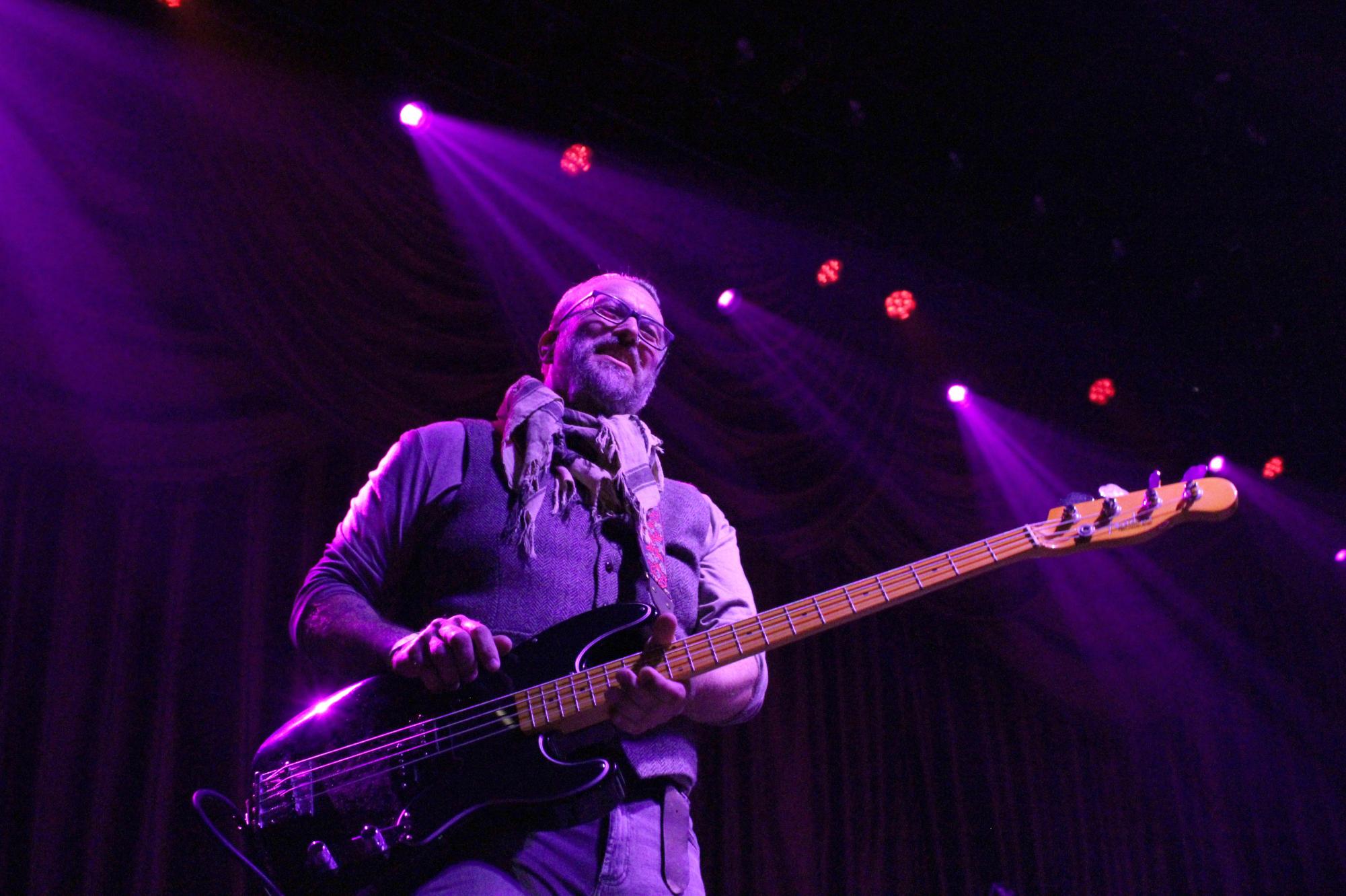
Do you feel like you were sort of thrown into the open waters just playing bass and playing a show out of nowhere?
S: Yeah, it’s terrifying. It’s absolutely terrifying.
A: Yeah, it’s quite a lot of people!
S: And even in the smaller crowds to start with, it was absolutely terrifying. Now, I’ve nearly got the hang of it. I can almost pass as somebody who’s played bass before.
A: How to generate some low frequencies.
S: I can generate some frequencies! Not necessarily with a bass… So, yeah, no, it was terrifying. But it’s amazing fun, isn’t it? It’s just good. It’s just nice.
A: This tour has been crazy, as well.
S: Yeah, we’re really lucky.
O: I still made music, by the way, for years. I used to do DJing and stuff like that.
I saw you had this IDM EP that you released!
O: On MySpace and stuff. That people don’t believe I made, it’s hilarious.
I know whenever your CD resurfaced, you guys were talking about how a lot of you actually really prefer the distorted version and what it represented, and that you were sort of worried what people would think of the actual clean music because they would “see it for what it is.” When you went back into the studio for Failed at Math(s), was there any desire to make it intentionally distorted?
A: No, I think you can sort of– you’ve got a reference point and I think you don’t want to stray too far from what people like about Panchiko. I don’t think anything we did was particularly intentional. We’re all still at full-time jobs. I just had a baby, right? We’re just hopping in, doing a little bit, and then we’re going, “I think it’s okay,” and then just sort of scooting off, innit?
O: We didn’t make it distorted, but I think sometimes it’s like, I think I’ll turn the distortion up to a certain point and you’ll go, “yeah, you can do that, but… it might need to be like this to make it a better audio quality.” So we sort of experiment with making it all sorts of things.
A: I’m quite proud of what we achieved with what we had.
O: We had to do something that wasn’t directly copying – sorry if you already sort of said that – you’re not trying to recreate what was… you’ve just gotta make what you’re gonna make now whilst being influenced by what happened about being discovered now.
Were you ever afraid that people would just want another D>E>A>T>H>M>E>T>A>L?
A: I don’t know if I’d say “afraid.”
O: Some people, that’s what they wanted.
A: But, they didn’t get it.
O: Yeah, cause you don’t often get that, do you? Like, whenever an artist makes an album you really like, they’re never gonna make that album again, really.
A: Our fans are sort of okay with the journey. Like, we’re trying to push it a little bit.
About a month after D>E>A>T>H>M>E>T>A>L was rediscovered, or at least a month after you guys found out about it, I think it was Shaun that said you still haven’t really stopped smiling since you found out about it.
S: Yeah. Still haven’t.
It has been a couple years and you guys have been on a few tours since then. Would you say any of the magic has dissipated at all?
S: No.
A: No, it just gets more crazy.
S: More ridiculous every day.
A: Because a new thing comes along to make you smile.
S: It’s the weirdest thing! Like, you literally get an email every other day with some other ridiculous offer or–
A: Someone saying– well, I think it’s the little messages, the DMs on Instagram just saying that, like, you know, it’s helped them in some way, and that’s just enough to make everything– like, just playing in front of a thousand people every night is amazing.
S: Yeah, it’s brilliant.
A: It’s a dream come true.
S: I’m not gonna stop smiling until people stop coming to see us!
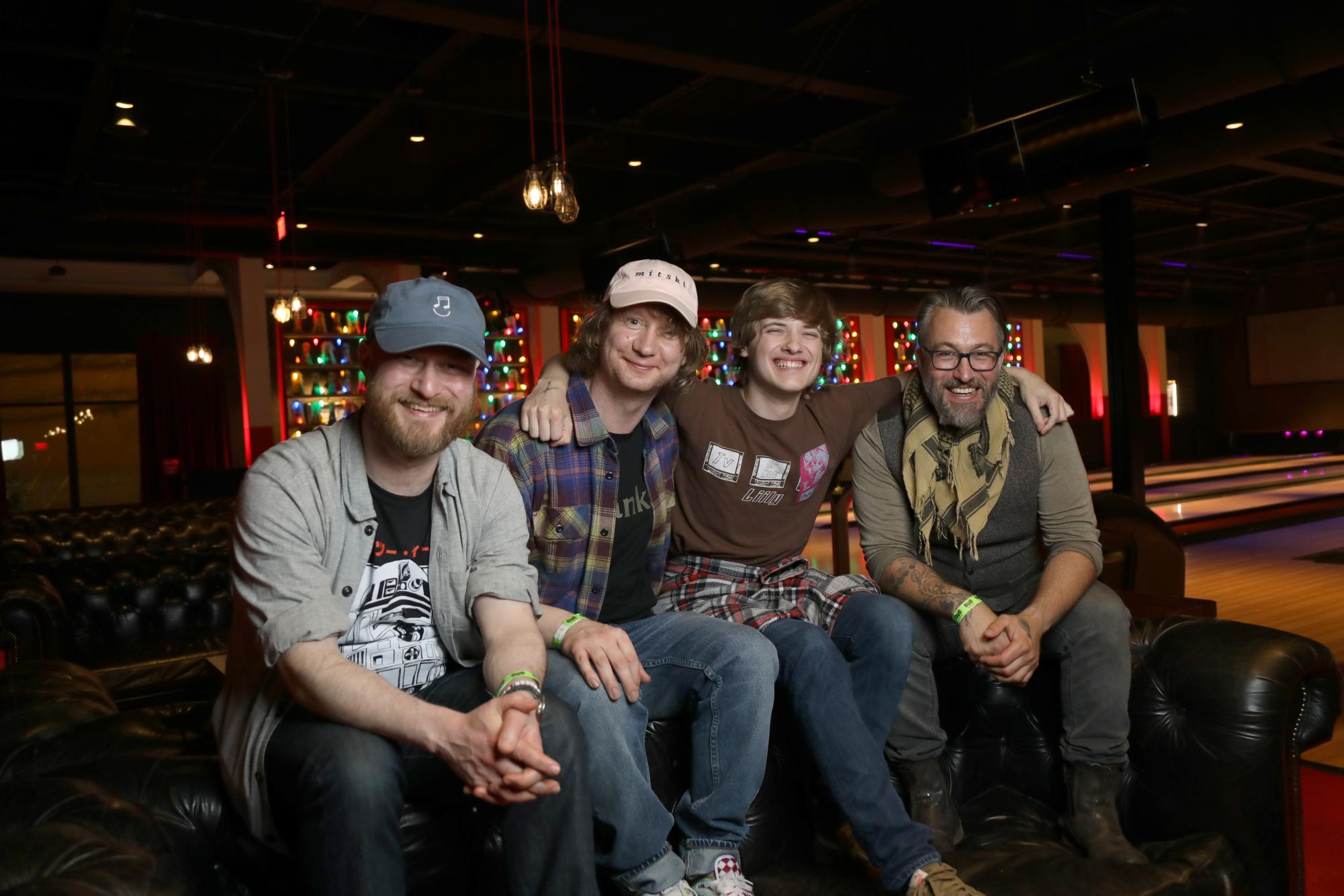
Thank you, thank you, THANK YOU to Panchiko for letting me talk to you for a bit! An extended thank you to the Brooklyn Bowl staff for letting us stay after close as long as we did.

